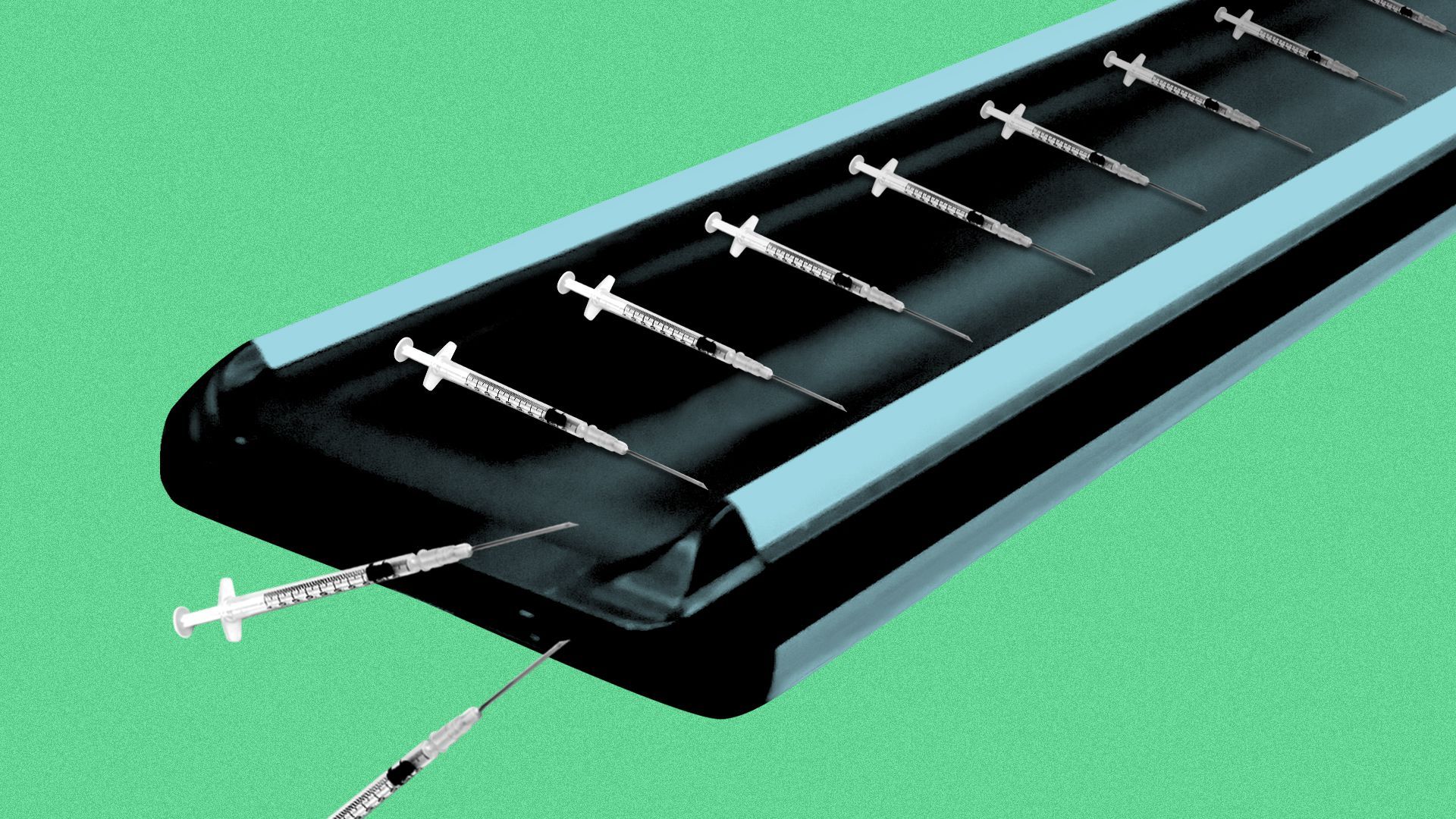Looming vaccine deadline adds urgency to COVID funding impasse
Add Axios as your preferred source to
see more of our stories on Google.

Illustration: Brendan Lynch/Axios
The U.S. government needs to contract with coronavirus vaccine makers by the end of the month in order to have enough booster shots for most Americans this fall but can't proceed until Congress approves more money, according to two senior Biden administration officials.
Why it matters: The debate over another round of booster shots is already heating up, and some experts are skeptical that they'll even be needed soon. But there's no telling what will happen between now and September, when the administration wants to have doses on-hand in case they're needed.
What they're saying: “If you want doses in the fall, we need to go to contract now. Not going to contract now puts those doses at risk," one of the senior officials told Axios. "We have to be prepared for a booster campaign beginning in September, in the fall."
- Administration officials told reporters earlier this week that there's only enough vaccine "for immunocompromised individuals who need to seek a fourth shot. What we don’t have the funding for is if all Americans were needed to get an additional dose, we would need additional funding from Congress."
- "Our gap in resources is even more severe if we need a variant-specific vaccine," an official added on the press call.
The big picture: Falling behind on booster shots is one of many consequences the administration has warned of if it doesn't get more COVID relief money soon. A $22.5 billion request has been ensnared in a congressional funding fight.
- Running out of treatments could be problematic sooner, especially if the U.S. is about to experience another wave of cases.
- But vaccines are generally essential to ensuring society can function while the virus keeps circulating. Both vaccine manufacturers and public health officials are working to make sure Americans aren't under-vaccinated when any future waves hit — either because of new variants or because of waning vaccine protection.
- "It would be important to have a contract in place with the U.S. government by the end of this month or soon thereafter to ensure that Americans have access to boosters in the fall, should they become necessary and if approved by regulators," said a source close to one of the mRNA vaccine makers.
State of play: The timing becomes especially urgent if it turns out that an Omicron-specific booster is necessary this fall, because there will be higher demand for it and the U.S. doesn't have a stockpile it can tap.
- Going to contract soon allows the U.S. to reserve its place in line with other countries for the doses, and helps inform vaccine companies on how much to make, one of the senior officials told Axios.
- The administration needs between $4 and 9 billion to purchase another round of vaccine, the officials added. A variant-specific vaccine would be more expensive than buying more of the original strain.
Go deeper: The COVID booster debate is back
